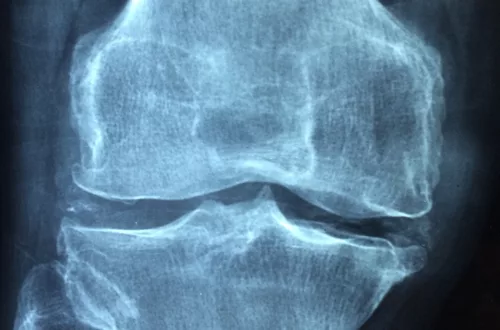Balancing and supporting progesterone levels is essential for women’s overall health and well-being. Progesterone, a hormone produced by the ovaries, plays a vital role in regulating the menstrual cycle, maintaining pregnancy, and promoting bone health. Unfortunately, various factors such as stress, aging, and certain medications can cause an imbalance in progesterone levels, leading to undesirable symptoms and health concerns. In this context, many women are turning to natural alternatives like herbs to restore hormonal balance and alleviate related symptoms.
Disclaimer: This article is provided for informational purposes only and should not replace professional medical advice. Please consult with a qualified healthcare practitioner or herbalist before using any herbal remedies.
Several herbs have been traditionally used and are backed by scientific research to support healthy progesterone levels. These herbs work in different ways, such as stimulating the body’s own hormone production, mimicking the action of progesterone, or protecting the body from the negative effects of hormonal imbalance. Incorporating these herbs into one’s daily routine can provide a safe and effective way of achieving hormonal balance without resorting to synthetic hormone supplements.
In the following article, we will explore the best herbs known to balance and support progesterone, their origins, and the scientific evidence behind their efficacy in promoting hormone balance and overall well-being for women. These can be a valuable addition to a holistic approach to health, especially for those seeking natural solutions to hormonal imbalances.
Understanding Hormonal Imbalances and Low Progesterone Levels
Hormonal imbalances occur when there is a disruption in the delicate balance of hormones in the body. Progesterone, a sex hormone, plays a crucial role in regulating the menstrual cycle, supporting pregnancy, and maintaining overall hormone balance. When progesterone levels are low, it can contribute to a variety of health problems and symptoms.
Low progesterone levels can be caused by several factors, including stress, poor nutrition, and certain health conditions. Women experiencing low progesterone may exhibit symptoms such as irregular menstrual cycles, mood swings, and fertility issues. In some cases, low progesterone levels can also be linked to more severe conditions, such as Polycystic Ovary Syndrome (PCOS).
A variety of herbs have been traditionally used to support and balance progesterone levels. Some of these herbs work by indirectly supporting the production of progesterone, while others may help the body to better utilize existing progesterone. For example, Vitex, also known as chasteberry, has been shown to benefit those with hormonal imbalances by supporting healthy progesterone levels 5.
Balancing progesterone levels can significantly improve overall health and wellbeing. By understanding hormonal imbalances and the role of low progesterone levels, individuals can seek appropriate treatments and support to optimize their hormone balance. Incorporating herbs and other natural remedies can be an effective and gentle approach to improving progesterone levels and restoring hormonal harmony within the body.
Symptoms of Progesterone Imbalance
Progesterone imbalance can manifest itself in a variety of symptoms that may affect women’s physical and mental well-being. These symptoms can be related to the menstrual cycle, menopausal phase, or premenstrual syndrome. It is important to recognize and understand the common symptoms of progesterone imbalance in order to seek appropriate treatment and support.
Irregular periods: One of the most common symptoms of progesterone imbalance is irregular menstrual cycles. Women may experience missed periods, shorter or longer cycles, or variation in the flow of their period. These irregularities can be a result of fluctuating hormone levels.
Mood swings: Hormonal fluctuations can also lead to mood swings and emotional instability. Women with progesterone imbalance may find themselves experiencing bouts of irritability, anxiety, or depression. These mood changes can be both challenging and distressing.
Premenstrual syndrome (PMS): Women with progesterone imbalance may have more severe PMS symptoms, such as abdominal bloating, breast tenderness, painful cramps, and headaches. These symptoms can be debilitating and significantly affect a woman’s quality of life.
Hot flushes and night sweats: Progesterone imbalance can also cause women to experience hot flushes and night sweats, particularly during menopause. These symptoms can be very uncomfortable and can disrupt sleep patterns, leading to fatigue and decreased energy levels.
Decreased energy levels: Women with progesterone imbalance may notice a significant drop in their energy levels. This can manifest as chronic fatigue, an inability to concentrate, or a general lack of motivation.
In summary, progesterone imbalance can cause a variety of symptoms, including irregular periods, mood swings, intensified PMS symptoms, hot flushes, night sweats, and decreased energy levels. Recognizing these symptoms is essential for seeking appropriate treatment and support in order to maintain overall well-being.

Importance of Balancing Hormone Levels
Balancing hormone levels is crucial for overall health and well-being. Hormones play an important role in regulating various bodily functions, and an imbalance can lead to a wide range of health issues. One of the primary concerns related to hormone imbalance is estrogen dominance, a condition where estrogen levels are higher than progesterone levels. This can cause a variety of symptoms and increase the risk of certain health problems.
A proper hormone balance is essential for women during their reproductive years, as imbalances can impact fertility and menstrual cycles. Estrogen and progesterone are the key hormones involved in regulating the menstrual cycle, and maintaining a healthy balance between them is crucial. When estrogen levels are elevated and progesterone levels are too low, women may experience issues such as irregular periods, heavy bleeding, and increased risk of uterine fibroids.
In addition to affecting the reproductive system, balanced hormone levels play a vital role in maintaining emotional and mental health. Testosterone levels, while less prominent in women, still contribute to their overall well-being. Imbalances in testosterone levels can lead to mood swings, fatigue, and even depression. Thus, it is essential to address hormone imbalances promptly to ensure optimal emotional and mental health.
Low levels of progesterone may further exacerbate health issues caused by estrogen dominance. Addressing progesterone deficiency is essential in managing hormone balance and mitigating symptoms. A variety of natural approaches and treatments, including the use of herbs, can help support healthy progesterone levels and restore hormonal balance. By prioritizing hormonal balance, individuals can take strides towards better overall health and well-being in the long run.
Herbal Remedies for Progesterone Support
Herbal medicine has long been used to support hormonal balance, with several herbs known for their beneficial effects on progesterone levels. One popular herbal supplement that has a positive impact on progesterone support is Vitex agnus-castus, also known as chaste tree berry. This herb has been found to contribute to normalizing the balance between estrogen and progesterone, making it a valuable remedy for women experiencing hormonal imbalances.
Black cohosh is another herb that has gained popularity due to its potential impact on progesterone support. It is commonly recommended for women experiencing menopausal symptoms, as it may help regulate fluctuating hormone levels. Additionally, dong quai is a traditional Chinese herb famed for its potential benefits on women’s health, including hormonal balance.
Supplementing with red raspberry leaf provides ample support for women’s reproductive health, as it is rich in nutrients and believed to enhance fertility and hormonal balance. Likewise, red clover is another herbal supplement that is thought to promote hormonal balancing, owing to its natural source of isoflavones, which resemble the structure of estrogen and provide support for the female body’s hormonal activities.
Evening primrose oil is often cited for its positive effect on progesterone levels, thanks to its high concentration of gamma-linolenic acid (GLA), an anti-inflammatory fatty acid that can help the body produce more progesterone when needed. Similarly, wild yam is an herbal remedy believed to support healthy progesterone levels due to the presence of diosgenin, a compound that may mimic the biological effect of progesterone in the body.
Herbs for Progesterone
Lastly, incorporating herbs such as cramp bark and dandelion leaf into your regimen can offer additional support for a healthy hormonal balance. Cramp bark is known for its ability to ease muscle pain and inflammation, while dandelion leaf may aid in liver detoxification, an essential process for maintaining optimal hormonal balance.
In summary, various herbs and herbal supplements like Vitex agnus-castus, black cohosh, dong quai, red raspberry leaf, red clover, evening primrose oil, wild yam, cramp bark, and dandelion leaf can potentially aid in supporting and balancing progesterone levels. However, it is essential to consult a healthcare professional before incorporating these remedies into your routine, as individual responses may vary, and some herbal supplements may interact with other medications or conditions.
Dietary and Lifestyle Changes for Progesterone Balance
A well-balanced diet and healthy lifestyle play a crucial role in maintaining progesterone balance. Incorporating specific nutrients such as vitamin C and fatty acids and making lifestyle changes can help support hormonal balance.
Vitamin C is essential for hormone synthesis and function. It supports the adrenal glands, reduces stress response, and may help increase progesterone levels. Include vitamin C-rich foods in your diet, such as citrus fruits, strawberries, kiwifruit, and bell peppers.
Fatty acids play a vital role in hormone production, including progesterone. Consuming a balanced diet containing healthy fats, such as avocados, nuts, seeds, and cold-water fish like salmon, may help maintain hormonal balance. Avoiding processed foods and added sugars can regulate blood sugar and insulin resistance, preventing weight gain and supporting a healthy pregnancy.
A key factor in balancing progesterone is managing stress. Prolonged stress leads to cortisol production, which can interfere with progesterone synthesis. Practicing relaxation techniques, such as meditation, yoga, or deep breathing exercises, can help reduce stress and support hormonal balance.
Keeping a healthy weight is also important for progesterone balance. Weight gain may contribute to insulin resistance and negatively affect hormone levels. Maintaining a regular exercise routine can help in regulating weight, reducing stress, and balancing hormones.
The pituitary gland plays an essential role in regulating hormone production. Ensuring proper function of the pituitary gland can be achieved through a balanced diet, regular exercise, stress management, and getting sufficient sleep. Avoiding exposure to environmental toxins can also contribute to hormonal balance.

In conclusion, maintaining a balanced diet rich in vitamin C and fatty acids, managing stress, exercising regularly, and promoting a healthy lifestyle can significantly contribute to hormonal balance and support progesterone levels.
Progesterone Production and How It’s Affected
Progesterone is a vital hormone in the human body, playing a critical role in the reproductive system of both men and women. Production of progesterone primarily occurs in two places: the adrenal glands and the corpus luteum, which is a temporary structure formed in the ovaries during the menstrual cycle.
In women, the main function of progesterone is to prepare the uterus for implantation of a fertilized egg and to maintain pregnancy. Progesterone levels are crucial in maintaining hormonal balance in the body. An imbalance in progesterone levels can lead to various health issues such as irregular menstrual cycles, fertility problems, and hormonal imbalance symptoms.
There are several factors that can affect the production of progesterone. Stress, poor diet, and environmental factors can all contribute to hormonal imbalances. Ensuring a healthy lifestyle and consuming a nutrient-rich diet can help in maintaining optimal progesterone levels. Sweet potatoes, for example, are a natural source of progesterone and can contribute to balancing hormone levels.
In order to boost progesterone levels, certain herbs can provide support and balance. Chasteberry is a widely used herb that supports progesterone production due to its variety of active compounds that may help normalize hormonal balance. Other herbal remedies include ginger extract, which has been reported to restore the balance between estrogen and progesterone in rats with polycystic ovarian syndrome.
Lifestyle changes such as stress reduction, regular exercise, and a balanced diet can also support progesterone production and overall hormonal balance. Combining these practices with the use of supportive herbs can be an effective approach to ensuring that progesterone levels remain healthy and balanced. Always consult with a healthcare professional before starting any new supplement or treatment.
Managing Health Issues Related to Hormonal Imbalance
Hormonal imbalances can cause a range of health issues, particularly in women. One common disorder resulting from an imbalance in hormone levels is polycystic ovary syndrome (PCOS). This condition typically involves irregular or missed periods, excessive hair growth, acne, and ovarian cysts. Managing PCOS and other hormonal imbalances often involves addressing the root cause and using natural remedies to balance and support progesterone levels.
Hot flashes and vaginal dryness are common symptoms experienced by women during menopause. These symptoms can be attributed to changes in estrogen and progesterone levels. Utilizing natural herbs and hormones can assist in regulating these levels and provide relief from such symptoms. Incorporating these herbs in the management of menopause can lead to improved overall health and better women’s health in general.
Another health issue related to hormonal imbalances is menstrual cramps, which are often caused by an imbalance in the estrogen to progesterone ratio during the menstrual cycle. Natural approaches to managing premenstrual syndrome (PMS) can involve using herbs that help alleviate symptoms and balance hormone levels, thus reducing menstrual cramps.
Hormonal imbalances can also lead to brain fog and fatigue, as hormones play a vital role in the regulation of energy levels and mental clarity. Incorporating specific vitamins and supplements can help balance hormones and improve cognitive function and overall well-being.
In conclusion, addressing hormonal imbalances is essential for managing various women’s health issues, including PCOS, menopause, menstrual cramps, and brain fog. Utilizing natural herbs, vitamins, and supplements can be a safe and effective way to balance and support progesterone levels, ultimately improving overall health and well-being.
Modern Treatments versus Natural Alternatives
When it comes to balancing and supporting progesterone levels, there are various options available, including modern medical treatments and natural alternatives. Each approach has its advantages and disadvantages, and selecting the most appropriate method depends on the individual’s needs and preferences.
Modern medical treatments often involve the use of birth control pills, hormone replacement therapy (HRT), and progesterone creams. Birth control pills typically contain synthetic hormones that regulate the menstrual cycle and reduce symptoms of hormone imbalance. However, they may cause side effects such as weight gain, mood swings, and an increased risk of blood clots. HRT is often prescribed to women experiencing menopausal symptoms and works by replacing the hormones that the body is no longer producing. Although effective, HRT carries risks such as breast cancer and cardiovascular issues.
Progesterone Creams
Progesterone creams are another popular medical treatment, as they provide a localized dose of the hormone, often leading to fewer side effects. These creams are usually applied topically and are absorbed through the skin, allowing for a more controlled drug administration. However, the efficacy of such creams may vary depending on the brand and formulation.
On the other hand, natural solutions encompass various approaches, such as the use of natural progesterone supplements and herbs. Natural progesterone is derived from plant sources, typically wild yam or soy, and is considered a safer alternative to synthetic hormone treatments. This option is often preferred by individuals looking for a more natural way to address hormone imbalance without resorting to pharmaceutical interventions.
Herbs for Progesterone
Herbs and supplements that can help balance progesterone levels include the use of adaptogens, which are natural substances that help the body adapt to stress and normalize bodily functions. Some common adaptogens include ashwagandha, holy basil, and Rhodiola rosea. Other herbs, such as chasteberry and black cohosh, are also known for their hormone-balancing effects.
Additionally, natural alternatives often involve lifestyle adjustments, such as implementing a healthy diet and regular exercise, which can help improve hormonal balance over time. These approaches can be beneficial not only for hormonal health but also for overall well-being.
It is crucial for individuals experiencing hormonal imbalances or those who want to support their progesterone levels to consult with healthcare professionals before embarking on any treatment plan, whether modern or natural. Each individual’s needs and medical history should be considered when determining the most appropriate course of action, ensuring optimal hormonal health and wellness.

Clinical Studies and Research on Herbal Remedies
In recent years, research has intensified to explore herbal remedies that can naturally balance and support progesterone levels. Some of the most popular herbs in these studies include white peony, milk thistle, and various adaptogenic herbs. This section will discuss the findings of various clinical trials and studies on these herbs, providing valuable insights into their efficacy.
White peony, a traditional Chinese herb, has attracted attention in many clinical trials due to its potential effects on the hormonal balance. A study focusing on women with polycystic ovary syndrome (PCOS) revealed that white peony could improve fertility by increasing the level of midluteal progesterone. This suggests a positive impact on hormonal balance, although more research is needed to confirm these findings.
Milk thistle, another widely-known herbal remedy, has demonstrated promising results in some clinical trials. A review of various studies indicated that milk thistle could be effective in controlling menopausal symptoms, which are primarily caused by hormonal imbalances. However, the authors of the review stressed the importance of more extensive, well-designed trials to better understand milk thistle’s potential for regulating progesterone levels.
Adaptogenic Herbs
Adaptogenic herbs, known for their ability to help the body adapt to stress, have also been investigated for their effects on progesterone. A clinical trial involving women with PCOS found a significant increase in progesterone levels after the intervention of an adaptogenic herb. Although this is valuable information, further research is necessary to establish the specific adaptogenic herbs most effective for supporting progesterone balance.
The interaction between estrogen receptor activity and herbal remedies has also been a topic of interest. Some research has compared the effects of specific herbs on estrogen receptor-positive breast cancer cells to those of a placebo group. However, the results of these studies have been inconclusive, and more research is needed to understand the complex relationship between herbal remedies and estrogen receptor activity.
In conclusion, various clinical trials and studies have shown promise in using herbal remedies such as white peony, milk thistle, and adaptogenic herbs to balance and support progesterone levels. However, more well-designed trials and research are necessary to confirm the efficacy of these herbs and to further explore their potential.








One comment on “Balance and Support: Best Herbs for Progesterone”